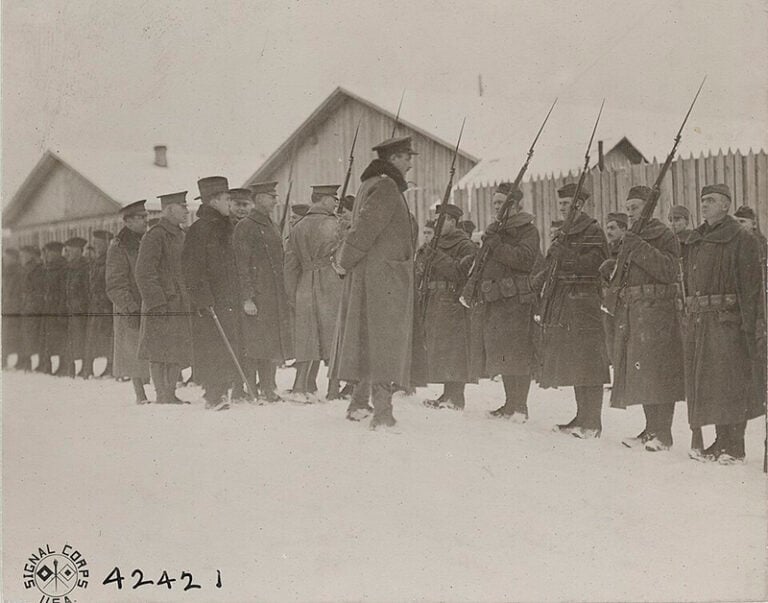By Andrew Young
Special to NKyTribune
On January 30, 1900, the Senate and House of Kentucky met together in a state of extreme emergency. The governor-elect, William Goebel, was teetering on the brink of death. The legislators, feeling it was only just and right, hurried to officially proclaim him governor before he passed on (which might be at any moment). They sought to give him the honor that someone else had tried to take so swiftly from him.
Yet, like many things in his life, William Justus Goebel had not won the governor’s race easily or without question.

Goebel was a fighter, and as he lay in bed with the results of a bullet passing through his body, he gave off confidence.
“I believe if anybody can get over a wound like this I can, and I feel like I will pull through.”
It had only been a short time before when he had left the Capitol Hotel. It was only a few blocks’ walk, but he and his companions were already running late when they approached the Capitol Building. Goebel passed a fountain in the yard and was headed for the steps when a shot rang out. He dropped to the ground, and many at the scene were sure he had died instantly. There were more shots, but no one else was hit. Once the shooting stopped, Goebel raised his arm and then dropped it. His companion, Colonel Jack Chinn, immediately went to his friend’s side and called for help. Soon they had Goebel on a wire cot and were carrying him to Dr. Hume’s office. Goebel moaned and cried out in pain, but it was enough to remind those with him that he was still alive.
William Goebel was not someone who would seem a likely choice for a governor of any state and especially not Kentucky. His family had supported the Union in the Civil War. He was an oddity in the halls and history of Kentucky’s political power game. He came from German immigrants. His parents died when he was young and left him to care for two younger siblings.
Goebel was particularly sensitive to the plight of common people. He found work primarily in Cincinnati and was eventually able to enroll at the University of Cincinnati’s Law School. After graduation he became a successful lawyer. Though he made good money, he lived simply. He did not care for the grand estates, once plantations, to be found in the rest of the state. In portrait photos he seems to be on the verge of a snarl. He was not known as a friendly man or a great speaker. Instead, he preferred to work behind the scenes.
Goebel was encouraged by friends and supporters to get into politics at a young age, and he must have enjoyed it for he devoted his life to it. He never married. His enemies called him “Boss Bill” and “the Kenton King.” In keeping with his un-Kentuckian ideas, he supported women’s and black rights. While his enemies called him a boss, his supporters called him a reformer. He was, in truth, a bit of both. He worked like a boss, making deals in smoky rooms; but the deals were to create and generate reform for the public. In this fashion, a man who had little to no personality became a silent Populist. He was opposed to large corporations like the Louisville and Nashville Railroad, which he regularly declared were running the state through corruption and bribery.
The gubernatorial race of 1899 began on November 7th. However the results took a while to be counted, especially from the eastern mountain counties. Goebel, the Democrat, was against William S. Taylor, the Republican. There was a breakaway party from the Democrats who felt Goebel had rigged the nomination process to ensure that he was the Democratic candidate. They were represented by John Y. Brown. Newspapers that supported Goebel tried to look hopefully and continued to predict his victory, even when the numbers were against him. The counts shifted multiple times, and everyone knew it would be a close race. In the end Taylor won about 48% of the vote, while Goebel garnered 47%. Taylor secured the election by a narrow margin of 2396 votes. Brown, the anti-Goebel Democratic candidate, pulled in 12,040 votes. If he had not run, Goebel might have had a better chance.
The Democrats were convinced that there had been vote tampering. There were rumors that some counties had used tissue paper to vote on, which could be seen through and was easily destroyed. The first district was said to have “doctored” the votes. The Louisville Courier-Journal, reported daily on the supposed crimes committed by Republicans. Clearly they were not fans of Taylor.
In the months that followed, newspapers and politicians became more inflamed. Some urged military force to be used. They shouted for the death of their enemies and laurels for those they supported.
Goebel’s supporters blasted Taylor and the anti-Goebel Democrats. Then, as if sounded from a massive horn from one end of the state to the other, Goebel was shot and lay dying in the capitol. The bullet had missed his heart and spine, but had gone through a lung, shattered his ribs, and caused massive interior damage and bleeding. A race for governor had fallen to violence. Not the actions of a single, deranged man; but what seemed to be a true conspiracy to murder Goebel. On January 31st, Goebel was declared Governor by the General Assembly, and J.C.W. Beckham as Lieutenant Governor.
The last of the formalities were performed next to Goebel’s death bed, where he could only say, “I do.” Taylor had called a militia into Frankfort almost a month earlier, and they prowled the streets with no legal standing. They had taken on the aspect of protectors for the politicians, but then barred the legislative building with bayonets. Goebel’s one true act as governor was a proclamation to dissolve Taylor’s militia. This was not heeded. William Justus Goebel died on the afternoon of February 3, 1900. His last words were relayed as, “Tell my friends to be brave, fearless, and loyal to the common people.” However Kentucky writer Irvin Cobb claimed that Goebel’s last words were, “That was one bad oyster,” referring to his lunch.
Goebel died a martyr for some and a slayed dragon to others. He was a champion to the idea that the ends justified the means. He remains the only governor in US history to be assassinated. He was the only Kentucky governor to never be married.
Several people were indicted in Goebel’s murder, but it came down to just a few main suspects. The highest ranking was Kentucky Secretary of State Caleb Power, who was tried four times and served eight years in prison. He was eventually pardoned and served several years in the U.S. House of Representatives. It was believed that the shots came from his office. Two others, one of them believed to be the shooter, were both pardoned. Taylor fled the state to avoid capture, but it was not long until he came back to challenge Goebel’s lieutenant governor Beckham’s governorship. Taylor lost the court case on the matter, and Beckham became governor.
Goebel was not completely forgotten. A statue in Frankfort, in front of the old Capitol Building, stands with arms crossed, ready to battle any challenge as a representative of the common people of Kentucky.
Andrew Young is a historian and writer living with his wife and two children in Northern Kentucky. He is the author of Unwanted: A Murder Mystery of the Gilded Age, which is a historic true crime book about the Pearl Bryan murder in 1896.

















